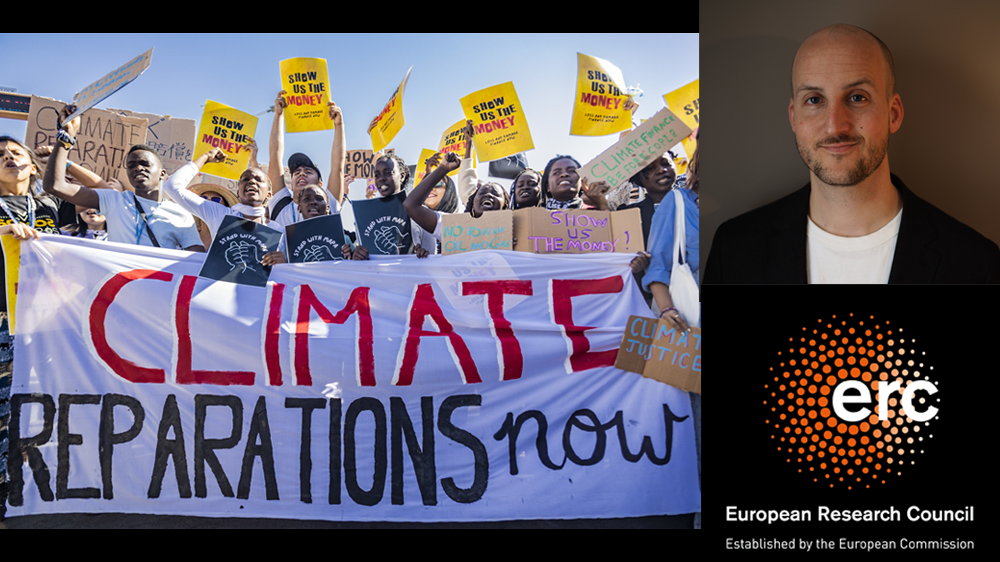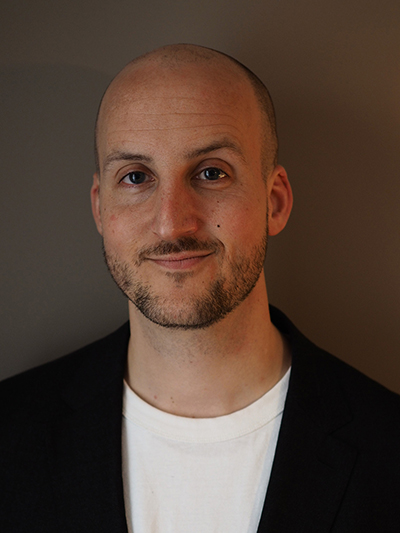We congratulate Felix Stein on securing funding from the European Research Council (ERC) for research on reparations as a response to global development challenges.

Felix Stein receives an ERC Starting Grant to study reparations. Photo to the left: Reparations protest at COP27. Photo: Midia Ninja (CC BY-NC 2.0)
Felix Stein is a postdoctoral fellow at SUM and receives the prestigeous ERC Starting Grant for his project titled Time to pay up? Reparations and global development challenges (REPAIR).

"This grant provides an excellent opportunity to study the increasingly diverse global reparations movement. Reparations are now being claimed over climate change and pandemics, toxic environments and discrimination of ethnic minorities. Our project studies how these claims challenge existing ways of doing development," says Stein.
Reparations are measures that aim to compensate for past wrongs by improving the situation of those who have been harmed. They include official apologies, changes to school curricula and - most controversially - they may include monetary payments. REPAIR will study different calls for reparations, in global development contexts and focus on how reparations payments are established, paid out and received.
Why study reparations now?
"I became aware of the importance of this issue when I learned that Haitian victims of cholera were demanding reparations from the United Nations over the introduction of cholera to their country. During the Covid-19 pandemic, I was struck to see former American President Trump demanding reparations from China over the Covid-19 outbreak, and to see global health scholars asking for reparations to finance the global pandemic response," says Stein.
Reparations are increasingly presented as a political pathway for greater global justice and well-being. Efforts to increase the amount of international aid, which dominated debates around the UN's Sustainable Development Goals (SGDs), have so far been insufficient to bring about a more just and prosperous world.
"The world is facing numerous development challenges that remain underfinanced. On the one hand, this leads to important calls for substantive global public investment. On the other hand, reparations claims are becoming an increasingly popular alternative to development aid and investment," says Stein.
Innovative project in the field of anthropology
ERC Starting Grants are awarded to talented early-career scientists who have a scientific track record showing great promise and who submit excellent research proposals to the ERC.

"It is a great pleasure to continue our work with Felix and to welcome this ERC project on reparations to our centre. This is the first ERC grant at SUM ever, and it is a huge milestone for us. The project is innovative in that it is the first comparative social science study of reparations in the development field, and the first research project to use novel theory and methods from economic anthropology to study reparations. This promises relevant new insights into their sociocultural nature and effects," says Professor Sidsel Roalkvam, Centre Director at SUM.
About Felix Stein
Dr. Felix Stein is an Economic Anthropologist at the Centre for Development and the Environment (SUM) at UiO, where he studies global health financing. Stein holds an MPhil in Development Studies from the University of Oxford and an MPhil and PhD in Social Anthropology from the University of Cambridge. He is the founder of the Open Encyclopedia of Anthropology and a member of the Global Health Politics research group at SUM.






